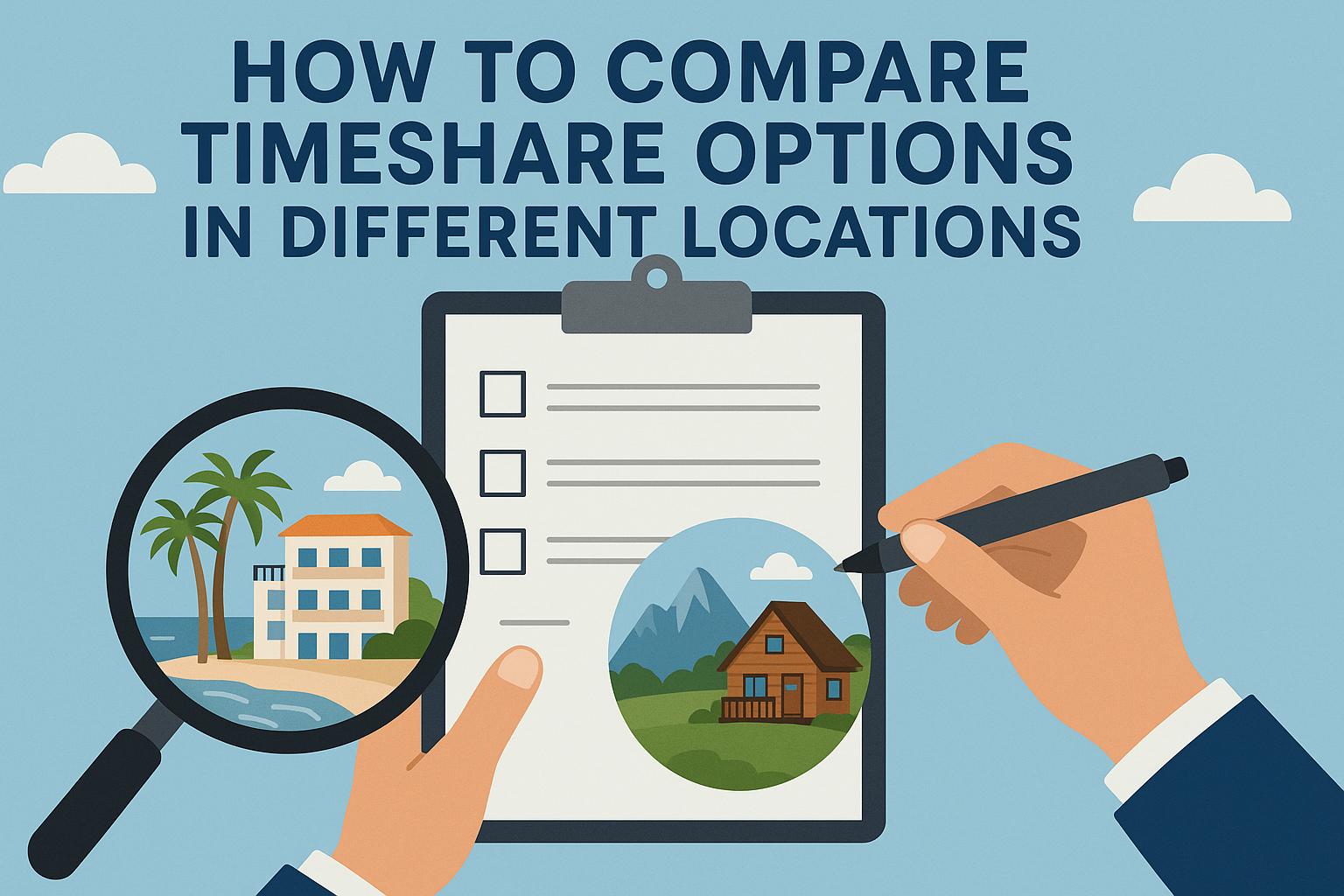Understanding Timeshare Options
When embarking on the journey of selecting the right timeshare for your needs, it’s essential to grasp the intricacies involved in making such a significant choice. Timeshares, a concept where multiple parties hold partial ownership of a vacation property, offer a unique vacationing solution compared to traditional hotel stays or owning a second home. They enable individuals to enjoy consistent vacation experiences in desired locales. However, the key to harnessing the benefits of a timeshare lies in evaluating specific criteria, ranging from location to exit strategies.
Location and Accessibility
The geographic setting of a timeshare property is not simply a backdrop but a pivotal feature that can either enhance or mitigate your vacation experience. Evaluating the proximity to key attractions, like beaches, parks, or historical landmarks, is crucial. Accessibility becomes a paramount factor, especially for travelers looking to minimize time spent commuting. Consider the transportation options available. Is the timeshare a short drive from an airport, or is public transport readily accessible? A robust transport network can ease movements, making your stay more comfortable and enjoyable. Conversely, while some may yearn for tranquility in remote locations, others might find such isolation a detriment if essential services are distant.
Costs and Fees
Delving into the financial aspects of timeshares is imperative before entering any commitment. Initially, there’s the purchase price to consider, which can vary significantly depending on the property’s location and available amenities. Beyond this, ongoing annual maintenance fees are a routine financial obligation. These fees cover maintenance, repairs, and property improvements, differing vastly across locations. Prospective buyers should appraise multiple timeshares to get a comparative idea of such fees. Furthermore, some properties might impose special assessments or have potential hidden costs. It’s advisable to scrutinize these aspects and pose direct questions about any fees not immediately apparent in the sale documents.
Amenities and Accommodation
The caliber of amenities greatly influences the timeshare experience. When examining potential properties, consider the accommodation size and layout. Does it offer the needed space and essential facilities like well-equipped kitchens or modern bathrooms? Beyond basic accommodation, the additional amenities set properties apart. Examples include swimming pools, fitness centers, or exclusive beach access. More luxurious timeshares might offer bonuses such as on-site gourmet dining or access to local cultural events. These added benefits can drastically enhance the value and enjoyment of your stay, making them a critical consideration when weighing options.
Ownership and Flexibility
The concept of ownership in timeshares can vary, offering different levels of flexibility. Understanding these options is crucial. A fixed ownership model might be ideal for those with a predictable schedule, granting them the same week annually. Alternatively, a floating week system provides some flex, allowing users to choose different weeks each year subject to availability. However, for maximal adaptability, exploring a point-based system could be beneficial. With points, you can tailor not just when, but also where and how long you vacation. This flexibility caters to varying schedules and preferences, presenting options not confined to a single location or time frame.
Exchange Programs
Exchange programs can augment the intrinsic value of a timeshare by offering opportunities to explore new destinations. Through these programs, you can swap your scheduled time for a different location globally. When assessing timeshares, verify whether the property is linked with notable exchange networks, such as RCI or Interval International. These networks expand your vacationing horizons, affording you the chance to tailor travel experiences without the limitation of a single locale. Inclusion in such a program often signifies greater potential for diverse vacation choices, thus adding substantial worth to the timeshare package.
Resale and Exit Options
While the initial purchase of a timeshare is a significant decision, understanding your options for reselling or exiting the arrangement is equally crucial. Timeshare markets can be complex and unpredictable, often posing challenges for resale. Analyzing the market demand for properties similar to what you’re considering is wise. Look into historical resale performances as a benchmark. Moreover, consulting with a real estate expert could furnish insights into anticipated trends, helping you gauge potential future values. Clear knowledge and forethought in this aspect guard against any unforeseen complications should you decide to divest from your timeshare in the future.
Legal and Contractual Considerations
Purchasing a timeshare is as much a legal commitment as it is a financial one, making the scrutiny of contractual agreements imperative. Prior to finalizing any deal, meticulously review all associated legal documents. These documents will often detail cancellation policies, ownership rights, and duration terms. It is judicious to seek the advice of a legal professional who can demystify complex clauses, ensuring that all stipulations are transparent and equitable. Legal advice serves as a safeguard, providing peace of mind that your interests are protected and all contract components are comprehensible.
By applying these examination criteria thoughtfully, prospective timeshare owners can align their investments with their vacation aspirations and financial capacity. Consider leveraging trusted informational sources or liaising with specialized timeshare consultants to refine your choices further and attain specialized guidance tailored to your circumstances. This careful deliberation transforms timeshare ownership from a mere transaction into a strategic lifestyle and financial decision.

 How to compare timeshare options in different locations.
How to compare timeshare options in different locations.